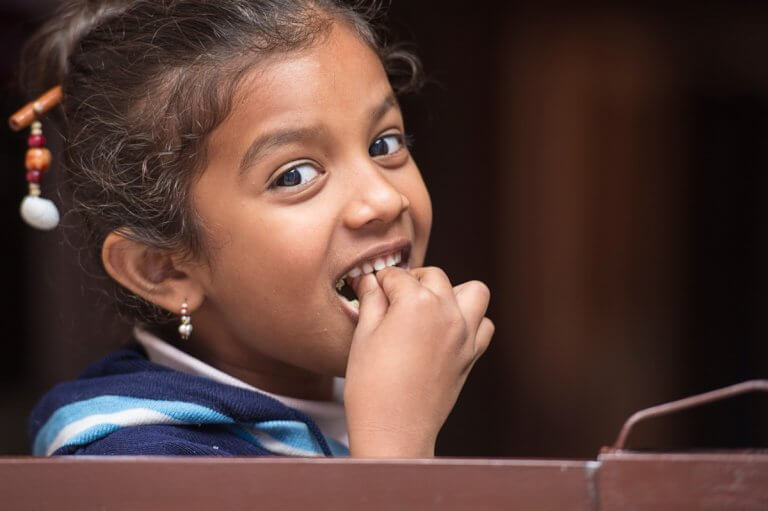
Food waste is a common issue around the world, especially in developed countries where consumerism is high.
According to the United States Department of Agriculture (USDA), “Americans waste enough food every day to fill a 90,000 seat football stadium. Approximately one-third of all food is wasted at the retail and consumer levels.”
Similarly, food is wasted by children (notoriously picky eaters) in large quantities. The USDA’s National School Lunch Programme serves 30 million kids on a daily basis, but the programme also loses US$5 million worth of edible food a day.
Besides the money loss, it’s an important issue to address because children must learn not to make it a habit to waste food.
It also teaches them to be environmentally-conscious, as food wastage has a hugely negative impact on the environment.
According to Grist, “Agriculture generates a third of US greenhouse gas emissions, and roughly a fifth of the nation’s pesticide, water, and fertilizer usage goes into growing food that will nourish no one.”
It’s up to the teachers and parents to educate young minds on reducing food waste so they grow up to be considerate, eco-friendly, economical adults.
They can do so by setting examples and supporting initiatives that inspire students to appreciate the food they’re wasting when they have their school meals.
Recently, it was reported that a non-profit group called ‘Cultivate’ is tackling food waste issues by repackaging them into meals that children from low-income families can take home.
Currently in its pilot programme, 20 students at Woodland Elementary School in Elkhart, Indiana went home last Friday with an insulated backpack filled with eight frozen meals for the weekend.

The frozen meals packed by Cultivate for underprivileged kids. Source: Fox47
According to NY Daily News, “Students who typically enjoy breakfast and lunch at school may not have access to food at night and on the weekends. The South Bend-based nonprofit most recently teamed up with Elkhart schools and has implemented its pilot programme to ensure that won’t happen.”
President and co-founder Jim Conklin of Cultivate told WSBT, “Mostly we rescue food that’s been made but never served by catering companies and large food-service businesses, like the school system. You don’t always think of a school system. And overpreparing is just part of what happens. And we take that well-prepared food and combine it with other food and make individual frozen meals out of it.”
To curb concerns of food spoilage and cross-contamination, the concept of the ‘food rescue’ is not about packing leftovers or days-old food, but meals that haven’t yet been touched.
According to the website, “The excess food that has been prepared, but not served, is picked up by Cultivate and re-purposed into individual and family-sized, well-balanced meals.
“Food rescue does not use garbage, we’re not animals here. Food Rescue helps organizations that have overproduced or over ordered inventory by taking these foods off their hands, bringing them into a professional kitchen and letting professional chefs create new and delicious meals for those in the community who are under served.”
So how does it work?
The group collects food from five Elkhart school production kitchens on Mondays, Wednesdays and Fridays, that would normally go into the trash, and prepares well-balanced meals which contain a protein, vegetable and starch.
The food rescue programme provides meals to the needy for the low price of $0.75 per day, and significantly reduces food waste in the process, tackling two issues at once.
Woodland student services supervisor Natalie Bickel said, “We were wasting a lot of food. There wasn’t anything to do with the food so they came to schools three times a week and rescued our food. So they’re going back to Cultivate, processing the food and coming right back to our students.”
She said that the initiative was met with much enthusiasm from students and cafeteria staff alike, who stood up and cheered when it was announced. “We had to start a little small because we weren’t sure if we would have enough food. The kids were thrilled, staff were crying, kids were so excited.”
Bickel also said that a whopping 64 percent of the more than 12,000 students in the district have been found eligible for the free lunches.
Following the success of the pilot programme, the school system has plans to expand the programme to include additional schools in the future. Bickel said, “That would be my dream.”
Other school systems around the world, and even universities, should take note of this initiative to curb food wastage and help students from underprivileged backgrounds who don’t have enough food to eat when they go home in the evenings and on weekends.
Even if they don’t have needy students in their schools, like in private or international schools, they can potentially partner with national schools or the community to re-purpose extra food.
It makes sense to re-use perfectly good food where it matters most, instead of tossing it in the trash, and students can learn valuable lessons from this initiative, too.







